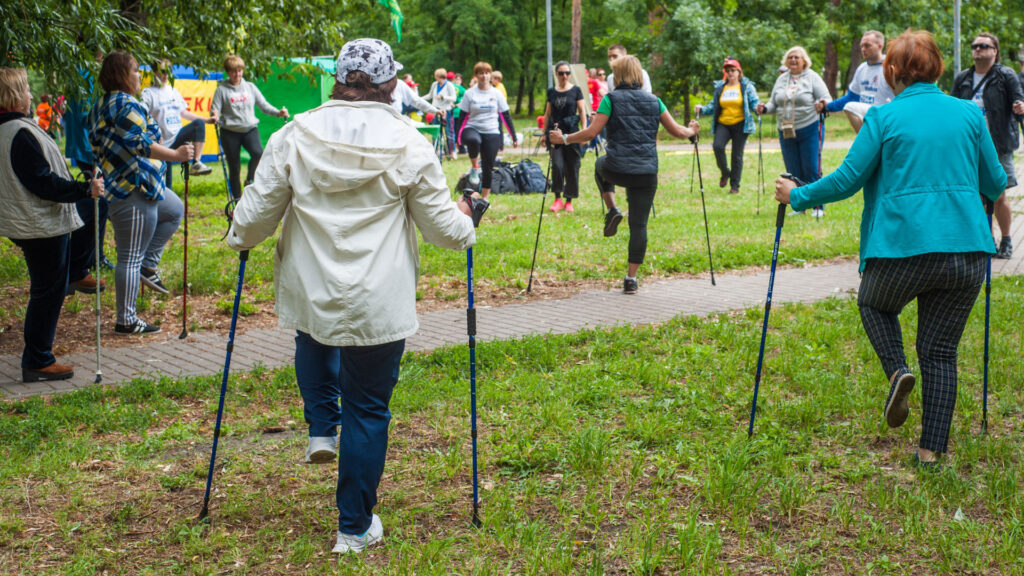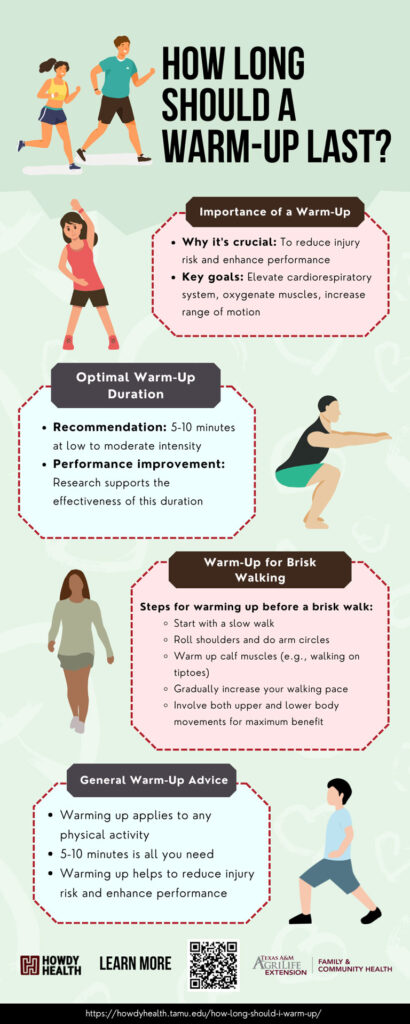Whether you’re hitting the gym, hitting the pavement, or hitting the trail, a quick warm-up is important, but how quick?
To reduce injury risk and enhance performance, you want to warm-up your body to gradually –
- Speed up your breathing and raise your heart-rate
- Pump oxygen- and nutrient-rich blood to your muscles
- Increase range of motion. 1,2,3,4
The warm-up should be at a sufficient intensity to elevate your cardiorespiratory (heart and lung) system without causing significant fatigue.5
5-10 Minutes
The good news is, current research suggests warming up for 5 – 10 minutes at low to moderate intensity can improve performance.5 So, just start slowly and pick up the pace a bit as you warm up.
How to Warm Up Before a Brisk Walk
Try beginning with a slow walk, rolling your shoulders and doing a few arm circles. Walk on your tiptoes a few strides (as long as you have good balance) to warm up your calf muscles. After a minute or two of slow walking, begin to speed your pace gradually. Move your arms back and forth, not just your lower body, for maximum benefit. Gradually increase your pace during the warm-up time as you move toward a brisk walk.
Whatever activity you choose, prepare your body with a short 5-10 minute warm-up so you can reduce your risk for injury and increase the likelihood of peak performance.
Want to walk with others? Join our Walk Across Texas Program for adults or youth.
Infographic
Download the PDF or share the image below to help others learn about how long a warm-up should last.
- Shellock F.G., Prentice W.E. (1985). Warming-up and stretching for improved physical performance and prevention of sports-related injuries. Sports Medicine. 2(4):267-278. https://doi.org/10.2165/00007256-198502040-00004
- Kozai, A, Surgenor, B. (2017). The importance of a good warm-up: Are you warm enough to start dancing. International Association for Dance Medicine & Science. https://cdn.ymaws.com/www.iadms.org/resource/resmgr/resource_papers/warm-up-importance.pdf; https://www.iadms.org/blogpost/1177934/272128/Are-You-Warm-Enough-to-Start-Dancing
- Sharma, N., Shah, S.H. (2019). Physiological and Psychological Effects of Warm Up and Cool Down in Games and Sports. International Journal of Physical Education & Sports Sciences. 14(1):60-63. DOI: 10.29070/IJOPESS
- McArdle, W.D., Katch, F.I., Katch, V.L. (2006). Factors affecting physiological function: The environment and special aids to physical performance. In Essentials of Exercise Physiology (3rd)(pp 512-557). Baltimore, MD:
- Bishop, D. (2003). Warm Up II. Sports Med 33, 483–498. https://doi-org.srv-proxy1.library.tamu.edu/10.2165/00007256-200333070-00002





